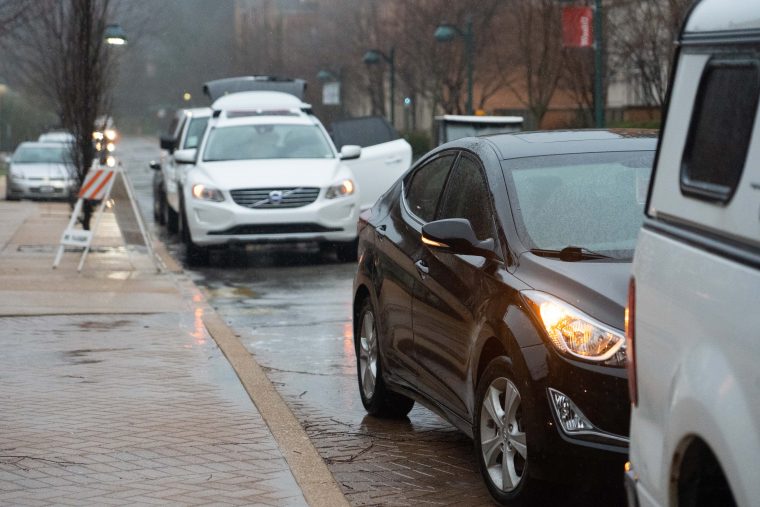News | Residential Life
Students experience delays, inconveniences in shipping request process
Students waiting to receive personal items from their University-owned residences may have to wait a while longer. After deciding to suspend shipping and packing operations on March 20, the Office of Residential Life is still uncertain about when operations will resume.
 Photo by Rory
Photo by Rory The suspension will last until at least April 6 to “flatten the curve” of the COVID-19 pandemic.
Following the University’s March 11 decision to instruct students not to return to campus, the Office of Residential Life promised to ship students’ personal items back to them over the course of the semester, with items deemed to be a first priority set to be shipped by March 23 and students’ remaining requested items originally aimed to be shipped by April 15.
The decision to suspend operations was based on recommendations from local governments, as well as experts at Washington University’s School of Medicine.
“We knew that St. Louis city and St. Louis County were going to basically put into place an order for all but essential staff to work from home,” Associate Vice Chancellor for Student Affairs and Dean of Students Rob Wild said. “And we could not justify the shipping and storage process for our student belongings as an essential University function.”
Before operations were suspended, the team of professional packers and over 100 employee volunteers from Residential Life managed to process all 2,400 requests for first priority items, which students classified as academically or personally essential.
Although Wild said that all first priority items were shipped before the shutdown, not all students received their packages by the intended deadline of March 23, the first day of online classes.
Sophomore James Cevasco still has yet to receive his first priority items, which included a notebook with notes for many of his classes. Cevasco’s professors, however, provided accommodations for students experiencing such setbacks.
“The professors have changed some things with their classes, so things that I would’ve needed, I won’t anymore because there are previous PowerPoints or lectures online,” Cevasco said. “So it ended up working out.”
Other students simply decided not to request certain valuable items through Residential Life, due to concerns over the security of the shipping process.
“It’s not like a deal breaker, but I did have a necklace that I value that I didn’t trust them with,” sophomore Alice Na said. “So I had to ask my friend to break into my dorm and get it for me.”
Wild admits that Residential Life’s system did not produce ideal outcomes for every student, but said he is nonetheless proud that the University managed to get all first priority items shipped on such short notice.
“We heard from students and families this week about some items that were missing or things that students had thought we were shipping and it wasn’t clear,” Wild said. “But we believe overall we’ve met our goal, we met our target, which was to get belongings to students by the time classes resumed on March 23rd.”
However, students may need to wait significantly longer to recieve their less essential second and third priority items, none of which were sent out before the suspension.
A commonly requested second priority item is clothing, since many students left for Spring Break with only a week’s supply.
“I would really like my clothes at some point,” junior Keishi Foecke said. “I only have a select few shirts, so I have to be borrowing from my mom. I would definitely like some of it eventually, but none of it is super high priority; they are all kind of luxuries that I would like at some point.”
“[Since] we’re just in our houses, I’m fine,” Cevasco said. “But if I was to go back to a regular life, I would probably need more clothes because I really kept almost nothing at home.”
For Foecke, receiving her lower priority items at the end of the semester or during the summer may not even be worth the wait.
“A lot of my stuff like my pots and pans, I don’t actually really want it shipped to me,” Foecke said. “I’d rather have it stay at Wash. U. and I could just pick it up when we come back… It would literally be them shipping it to California and then me bringing it right back.”
Wild plans to provide regular updates on the shipping request process in the interest of providing transparency, but said that the uncertainty around the COVID-19 pandemic makes concrete planning impossible at this point in time.
“I can’t even speculate on [when shipping and packing could resume] today,” Wild said. “We know at the University that our highest priority once we can get the campus back up and running [is] to get students united with their belongings. Unfortunately though, we just don’t know when that’s going to be and we don’t know how that’s going to happen at this point.”
